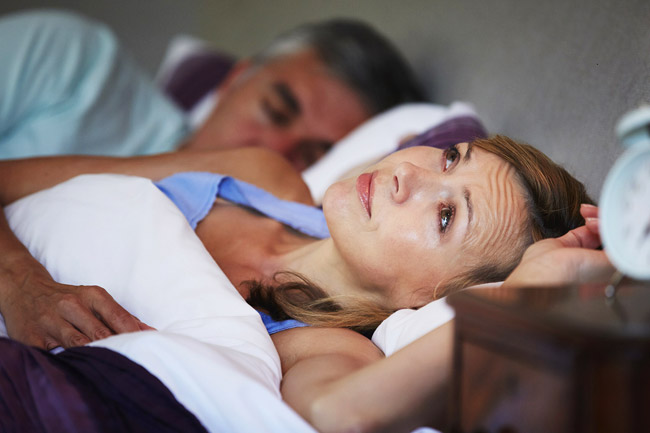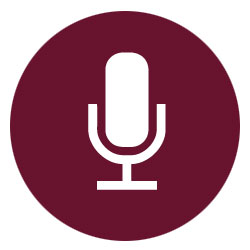Dealing with Sleeplessness

If you�re like many people, you�ve also experienced any one or more of these
symptoms (indicated below) for more than several nights running. If so, you
probably had (or have) insomnia, the medical name for inadequate sleep that
occurs for at least one week. Among the causes are a noisy environments, high
caffeine or alcohol intake, use of recreational or prescription drugs, an
existing illness,
stress,
a fidgety bed partner, or something else completely. Yet, regardless of what
causes insomnia, the results are the same: daytime tiredness, slowed thinking,
slowed movements, moodiness, complexion changes (some people start developing
spots, some look pale, others experience
dry skin), and a
haggard appearance. Fortunately, the occasional sleepless night and full-blown
insomnia can be either prevented or banished with good sleep hygiene.
If you�re having difficulty sleeping, take note of some of these simple rules.
Dim the lights and draw the blinds
Many sleep experts believe exposure to bright light, either before bedtime or
after you go to bed can hamper sleep. How? By tricking your body�s internal time
clock into thinking it is earlier in the day.
The
pre-bed countdown
As the cause-and effect creatures we are, living things love a routine.
That�s why your body comes to view things like face-washing and teeth-brushing
as signals that mean sleep is near. Make a routine of these pre-bedtime tasks
and your body will react by slowing down and growing sleepy.
Keep
regular hours
Your body functions best on a schedule. Help you body maintain a healthy
circadian rhythm by going to bed at the same time each night and getting up at
the same time each morning�yes, this includes weakened nights and mornings, too.
Exercise
the right way
Daily exercise
keeps your body running efficiently, and this helps promote regular sleep.
However, vigorous physical activity energizes the body, making sleep difficult,
so experts recommend that you exercise at least 4 hours before bedtime.
Avoid
eating heavily before bed
While your first impulse after finishing a big meal may be to nod off, the
sleep won�t last. That�s because your bodily systems- such as metabolism,
heart rate, and
breathing- must begin speeding up to digest all that food sitting in your
stomach. As soon as they start revving up, you�re going to wake up.
At the same time, an empty stomach is detrimental to good sleep. Why? Your
growling stomach may disturb you, and perhaps even your bed partner.
Limit your caffeine intake
Because caffeine is a stimulant, it can upset your body�s natural time
clock. For that reason don�t consume caffeine after 2 or 3 p.m.
Be aware of hidden caffeine in cola and other soft drinks, coffee-flavored ice
cream, yoghurt, and chocolate.
Avoid
too much alcohol
Yes, a third glass of wine makes you want to fall asleep, but after spending
3 to 5 hours in your system, alcohol turns into a kind of stimulant that
disrupts your body�s deep sleep. Its dehydrating effect can also wake you up.
Try a small portion of tryptophan b>Tryptophan is an amino acid that helps the body produces the sleep hormones serotonin and melatonin. Bananas, milk, peanut butter, whole grains, and turkey all contain tryptophan. Take advantage of their natural sedative powers and eat a small amount of one or more of these foods an hour or two before bedtime.
Get herbal help Valerian root, kava, passionflower, chamomile, catnip, verbena, and skullcap all have tension-relieving and sedative powers. Try an herbal infusion brewed with one of these herbs.
If you�re one of those small-bladdered types, avoid herbal teas or other soothing drinks just before bed time. After all, what�s the good of being knocked out if you�re going to be woken up by a full bladder a few hours later?
Scented sleep
Essential oils have long been used by aromatherapists as natural sedatives. My personal favorite is lavender oil, which I sprinkle on my sheets and which never tails to knock me out. Other oils to try include chamomile and sandal wood. Try scenting your bedroom with oils, or try making yourself a scented sleep pillow like the ones you see in aromatherapy and gift shops, by stuffing a small pillow with a blend of relaxing dried hops, chamomile, and lavender.
Bath therapy
A warm bath has a soothing effect on your body and mind. It can case stress and lower the body�s temperature, which in turn includes sleepiness. Avoid hot water (which can speed heart rate and respiration, as well as cause sweating) and time your bath to within an hour of bedtime. Throw chamomile tea bags into the water or add a few drops of relaxing lavender.
Exchange mass media for a book
Instead of watching heart-stopping television shows, listening to the radio, or reading newspapers and news magazines, opt for a relaxing book before bedtime. Violence, stimulating music, and disturbing news � all these signal the body to produce adrenalin and won�t help you get to sleep.
Don�t just lie there!
If you find yourself wide awake, get up, go to another room, turn on a dim light, and read until you feel ready to fall asleep. According to sleep researchers, remaining wide awake in bed �trains� your body to associate your bed with wakefulness�not something you want to do.

